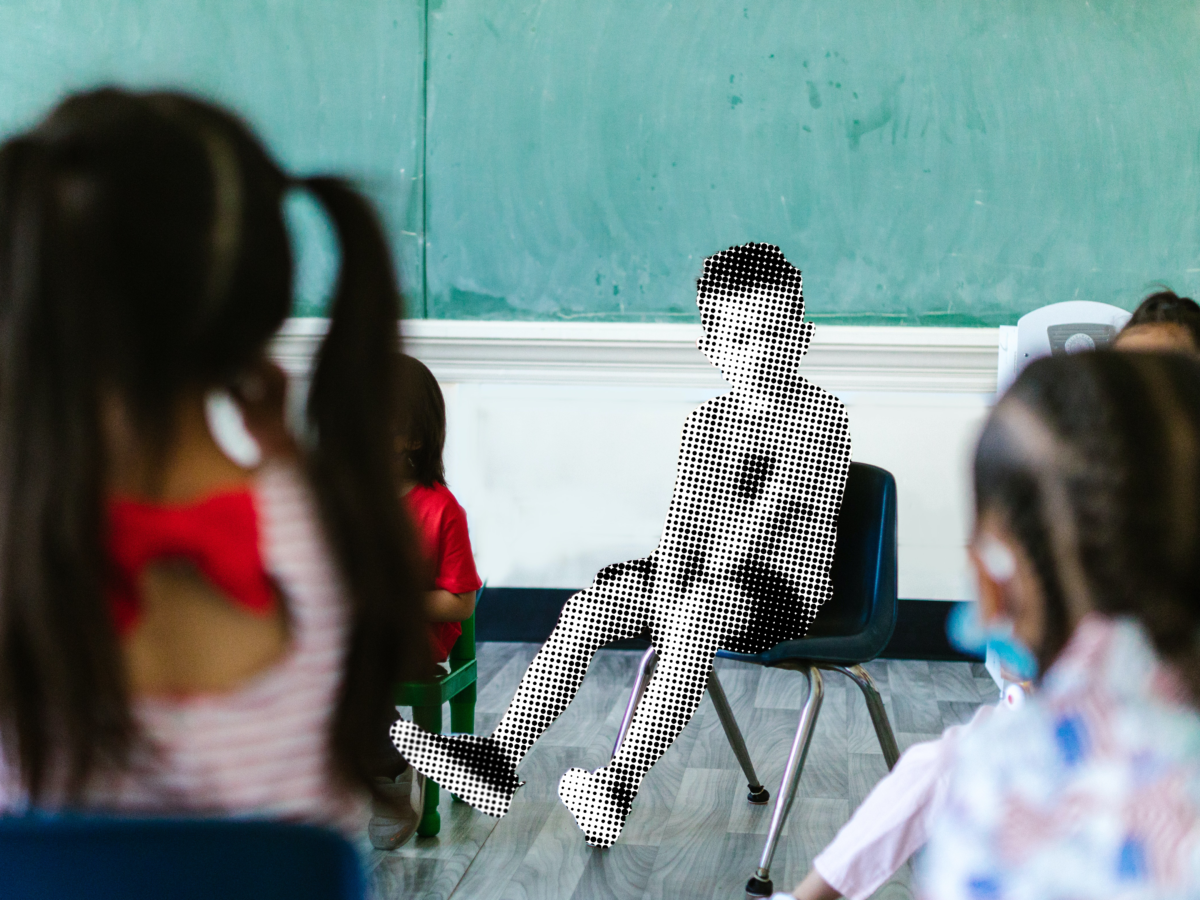

|
|
Each year, hundreds of North Carolina children experience “exclusionary discipline” — removal from their usual learning and social settings — before they even reach kindergarten.
The ill effects on their brain development, mental health, future education outcomes, and family well-being can be so dire that some experts call exclusionary discipline the “preschool-to-prison pipeline.”
But in North Carolina, those who are studying solutions don’t have a firm grasp on how many pre-K students are being suspended, expelled, or otherwise subjected to exclusionary discipline each year.
The best available data are from 2017-2018 and represent the experiences of only about 20% of the state’s 4-year-olds.
“It’s almost useless information,” said Paul Lanier, an associate professor in the School of Social Work at UNC-Chapel Hill, in an interview with EdNC. In his research, Lanier focuses on child welfare, mental health, and early childhood systems.
The data come from the U.S. Department of Education’s Office of Civil Rights, whose most recent count of suspensions and expulsions in North Carolina is limited to the 28,385 students enrolled in those pre-K classrooms that are operated by a public school system.
According to the data, 89 pre-K students received one or more out-of-school suspensions during the 2017-2018 school year.
There were no reported expulsions.
‘It’s a black box’
Those numbers seemed like an undercount to Lanier, who described the data as “very unbelievable” based on what we know from other sources about the expected prevalence of expulsions.
But this information, while out of date and incomplete, still reveals continuing inequities in the application of exclusionary discipline among the state’s youngest children.
The vast majority of pre-K students who were suspended were male (84%), and the majority were Black (54%). Black males alone made up almost half (47%) of all suspensions.
Additionally, 40% of suspended pre-K students had legally recognized disabilities.
These patterns are consistent with the more robust data available on suspensions and expulsions in K-12 education.
Aside from their other limitations, the Office of Civil Rights data represent just a small subset of 4-year-olds in North Carolina. Many children from birth through age 4 receive early care and education in private settings, including home/family-based, faith-based, and community-based programs, which aren’t included in those numbers.
“In the private early care and education settings, it’s a black box,” Lanier said.
Morgan Forrester Ray, director of the EarlyWell Initiative at NC Child, shared similar concerns with EdNC.
“Lack of data is truly a fundamental problem,” she said.
In addition to the lack of data, there are other forms of exclusionary discipline in practice that wouldn’t be counted in a traditional assessment of suspensions or expulsions.
Lanier and Ray each described circumstances in which children experiencing behavior problems can be removed from their classrooms. They can be switched to another classroom, held in an administrative office, or simply sent home early for the day.
These forms of discipline are not considered suspension or expulsion, but they do exclude the children from participating in their usual social and learning environments.
‘Pretty much the worst option’
Lost time in those environments is particularly critical during the first three years of brain development, when the vast majority of neural pathways are formed. During this time, children need positive interactions with adults who can provide them individual attention and care, even more than direct learning experiences. Those interactions don’t usually happen when students are removed from their regular care settings.
Ray also pointed out that exclusionary discipline isn’t just bad for children, but for families as well.
“Expelling, suspending, kicking a child out of their child care and early education program is pretty much the worst option, because for most families it’s really hard to find safe, quality childcare, and it’s really hard to afford it,” she said.
When a child is removed from an early education setting, Ray said, parents and guardians often have to stop working to care for the child or find new child care options. This has major implications for the state’s entire economy.
“You’re losing wage workers and tax money today, and then additionally the children aren’t receiving opportunities to develop,” she said. “That’s why they call it the preschool-to-prison pipeline.”
Children who are suspended or expelled between birth and age 4 are more likely to experience those forms of exclusionary discipline during their K-12 education, which also makes them more likely to become involved with the criminal justice system as adults.
In 2017, North Carolina’s Division of Child Development and Early Education (DCDEE) released a policy statement on early childhood suspension and expulsion that acknowledged the harmful nature of exclusionary discipline.
The statement acknowledges that “research suggests that school expulsion and suspension practices are associated with negative educational and life outcomes.”
According to the statement, DCDEE’s policy is to “prevent, severely limit, and work toward eventually eliminating the expulsion and suspension – and ensure the safety and well-being – of young children in early learning settings.”
But a 2018 report from the Department of Public Instruction’s Office of Early Learning (OEL) explains that the application of exclusionary discipline in the public education systems, including young children participating in public pre-K programs, depends on each school district’s official Code of Student Conduct.
This means rules that apply to high school students can be applied to young children. For example, according to the Wake County Public School System Code of Student Conduct, a pre-K student could be suspended for up to 10 days for behavior that “substantially disrupts the educational environment or threatens the health, safety, or welfare of staff or students.”
Examples of such behavior include “engaging in loud or boisterous conduct that significantly distracts others from peaceable and orderly school activities.”
Young children who have been exposed to adverse childhood experiences (ACEs) often behave in ways that can be considered disruptive.
“The kiddos that are receiving exclusionary discipline tend to be those that are the most impacted by social determinants of health,” Ray said. “They’re already struggling, which is why they’re having these behaviors.”
The pandemic has exacerbated these pre-existing issues.
The pandemic’s impact
The Department of Education did not collect data on suspensions and expulsions for pre-K students during the pandemic, but Lanier said he suspects exclusionary discipline has increased during that time.
While noting that there is no empirical evidence of a trend, he outlined two challenges that probably have led to greater reliance on exclusionary discipline in recent years.
The first factor is the stress that children and families have experienced during the pandemic. Teachers at all levels of education have reported more problematic behaviors among children as they struggle to cope with that stress.
Secondly, providers who work in early care and education settings have fewer resources for supporting students than they did before the pandemic. As Lanier explained, staffing shortages and lack of preparation for coping with this scale of trauma can make exclusionary discipline seem like the most accessible option for managing classrooms.
But Lanier pointed to several projects in development to address these issues, including Ray’s work with NC Child’s EarlyWell Initiative, which recently produced a report about what families need and want from early childhood social-emotional health ecosystem based on surveys and interviews of more than 200 North Carolina families.
“There’s greater awareness now about mental health concerns for kids,” Lanier said.
He’s conducting research in partnership with the Smart Start Network that will use surveys to collect data on exclusionary discipline in early care and education settings across five counties — Martin, Mecklenburg, Pitt, Randolph, and Wake. Those data could provide insight into how common the practice actually is, in addition to serving as a benchmark for implementing and evaluating alternatives.
“I think maybe that’s the direction you’ll see states kind of going into, just collecting their own data and not relying on the federal data,” Lanier said.
But for now, information about the prevalence of exclusionary discipline among the state’s youngest children remains in a black box.





